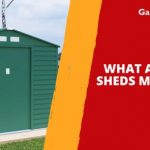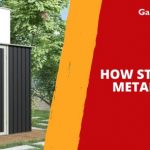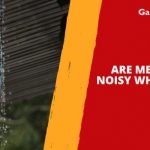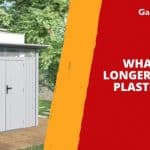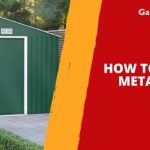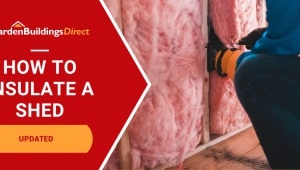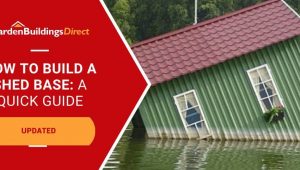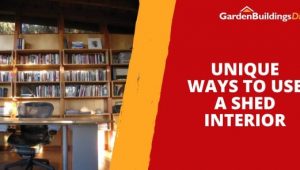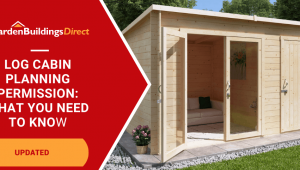Jump to:
Metal sheds are lightweight but solid, so they won’t get blown down or fall apart when adverse weather hits. Given their durability, you might wonder about the necessity of a base. So, does yours require one? Find the answers here!
Why Is a Solid Base Crucial for Your Metal Shed?
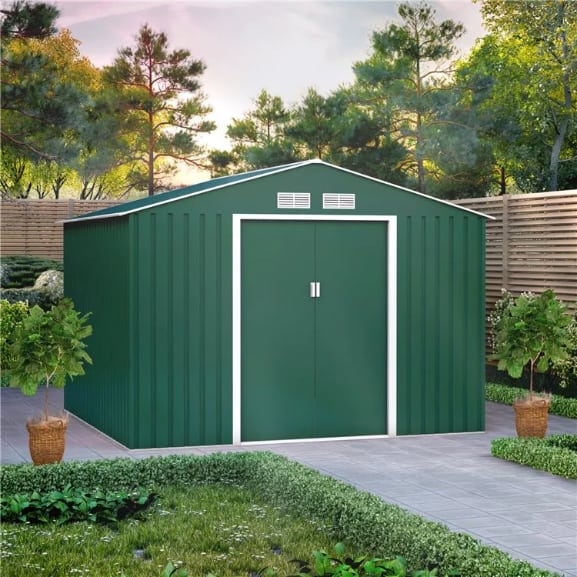
Garden sheds, including metal ones, need a sturdy base. Since many of these steel structures lack floors, not having one would spell disaster. Even if they come with flooring, placing them directly on a lawn is a no-go. The risk of sinking is significant due to their weight.
The base or foundation provides stability to these structures from sinking or tilting. This structural support system also ensures their longevity.
What Are the Benefits of Metal Shed Base?
The stable support the base provides helps extend your metal shed’s lifespan. Structural issues during strong winds or heavy rain are less likely. The secure foundation minimises the risk of collapse while providing consistent support. In return, the shed remains intact, with no warping, even in harsh weather conditions.
Another is preventing ground moisture damage. Soil moisture can eventually cause rust or corrosion when placed on the ground. A proper base gives the shed elevation, reducing contact with moisture. A raised foundation also allows for better ventilation and drainage around the outbuilding. This, overall, helps stop metal shed condensation from occurring.
Installing a base also enhances the functionality of your steel storage. It ensures the shed doors open and close smoothly. Plus, efficient storage or workspace thanks to the flat surface the structure sits on.
Are There Situations Where a Base Might Not Be Necessary?
Yes, there are. For instance, if you have a small metal shed that you’re placing on a well-compacted, level ground, you may not need a separate metal shed base. The same goes if the structure is temporary and you plan to move it frequently. This could be practical as the shed remains easier to relocate as needed without the base.
Can Skipping the Base Impact the Metal Shed’s Structural Integrity?
Skipping the base might initially seem like a cost-saving measure, especially when the ground condition is just right. But in most cases, it can impact the metal shed’s structural integrity.
This, in turn, makes it more susceptible to issues like uneven settling. Moreover, the shed’s weight may not be evenly distributed. It can cause parts like joints or support beams to be overloaded and eventually fail.
Don’t skip the shed floor base unless it’s truly unnecessary!
How to Determine the Ideal Metal Shed Base Type?
There are four options — see which one best suits your shed needs to find the ideal base type:
1. Concrete slabs
A slab base or foundation is made of concrete and often placed on a layer of sand for drainage. It’s a large, heavy lair that is ordinarily 4-6 inches wide at its innermost and cascades directly on the ground.
Cons: Expensive and time-consuming to install. It may require professional help.
2. Wooden platforms
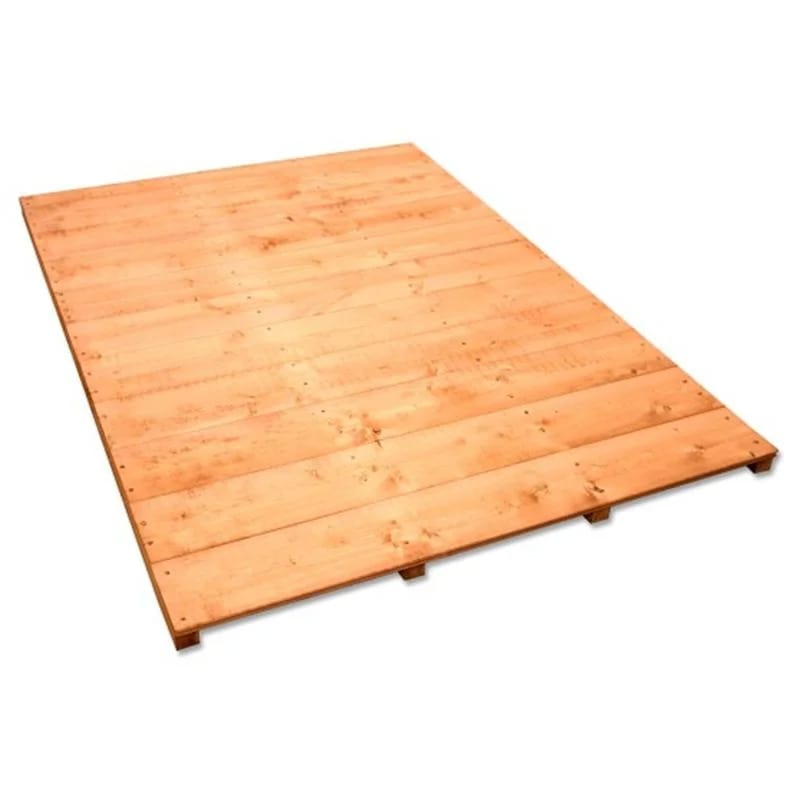
A wooden shed floor or platform is a flat, elevated surface made entirely of wood. It consists of beams or planks arranged horizontally to create a sturdy and level base. Visually, this type of metal shed base resembles a large, solid wooden deck or floor raised off the ground.
Cons: Susceptible to rot and pests if not properly treated or maintained.
3. Gravel beds
A gravel bed foundation involves levelling the ground and evenly spreading gravel across the shed’s location. This allows for adequate drainage and prevents water from pooling around the shed’s base.
Cons: Less stable than concrete or wood, and it may shift over time.
4. Ground anchors
Ground anchors consist of a metal rod or shaft with a pointed end that can be driven into the ground. They’re lightweight, corrosion-resistant, and prevent movement caused by strong winds. Once installed, the anchors firmly grip the soil, anchoring the metal shed to the ground.
Cons: Less suitable for larger sheds. They may not provide a fully level surface.
Do All Metal Sheds Need a Base?
The question of whether every metal shed needs a base is common, but the answer isn’t one-size-fits-all. It varies based on specific circumstances. Small garden sheds or temporary installations may not require a permanent base. However, a stable base becomes essential for larger, more permanent structures and areas prone to moisture.
If you have any further questions, please don’t hesitate to contact us at 01909 768840. What’s next on your reading list: How Long Do Metal Sheds Last?
